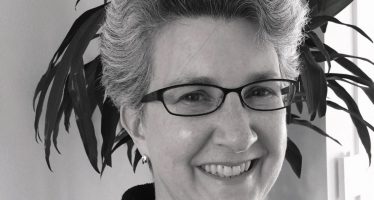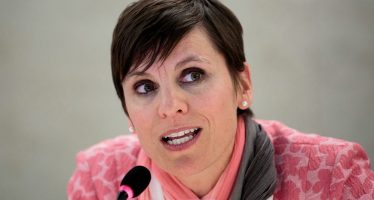Ahmed Mater: Flower Power, Saudi-Style
 I shop, therefore I am. Globalisation has arrived in the Middle East and with it the brand-name accoutrements of the consumer society. Entire cities have been erected to celebrate this new age of unbound consumption, or of consumerism on steroids. Ikea may have descended on Riyadh and Abu Dhabi; the real impact is made by the likes of Hermès, Harry Winston, Bréguet, and other purveyors of ultra-high-end indulgencies. This is a rarefied segment of the luxury market that considers Louis Vuitton merely a staple – rather too ordinary to be publically associated with.
I shop, therefore I am. Globalisation has arrived in the Middle East and with it the brand-name accoutrements of the consumer society. Entire cities have been erected to celebrate this new age of unbound consumption, or of consumerism on steroids. Ikea may have descended on Riyadh and Abu Dhabi; the real impact is made by the likes of Hermès, Harry Winston, Bréguet, and other purveyors of ultra-high-end indulgencies. This is a rarefied segment of the luxury market that considers Louis Vuitton merely a staple – rather too ordinary to be publically associated with.
What is an artist to do? Well, join the hype.
Surrounded by the relentless demand for instant gratification generated by a society cast adrift from its roots, the art scene is positively buoyant – if not flourishing – in Saudi Arabia and the adjoining countries along the southern shore of the Arabian Gulf.
It makes perfect sense: in times of plenty, patronage of the arts goes on the ascendant. In fact, Saudi Arabia is currently in the midst of a Golden Age not unlike the one that produced the Dutch masters of 17th century – Frans Hals, Johannes Vermeer, Jan Steen, and Rembrandt van Rijn. At that moment in history, the Dutch Republic was the most prosperous country in the world. This is no coincidence: the analogy holds.
In keeping with the times, art is now a globalised industry. At its Saudi vanguard is Edge of Arabia, a collective of independent artists pushing Arab art onto the world stage. In 2009, Edge of Arabia presented eight Saudi artists at the 53rd Venice Biennale, widely seen as a portal to Art Basel – the world’s largest commercial venue for modern and contemporary art.
After its debut in Venice, Edge of Arabia embarked on a world tour to the wide acclaim of critics, dealers, and the general public. Returning home to the kingdom, the collective’s founders extended the scope of their initiative to include educational programmes offering mentoring, workshops, and symposia to budding artists from the region.
One of those founders is Ahmed Mater who, through his art, seeks to address the deeper questions facing the nation: its transformation, religious heritage, and related existentialist queries. Is humanity more than just the sum of bodily parts, and if so: what is it?
The interest of the British Museum was piqued and it promptly acquired Mater’s opus magnum Prognosis: a series of collages depicting quintessentially Saudi vistas – the Ka’aba, the Grand Mosque, and other cultural references – superimposed on x-ray sheets in a nod to the artist’s background as a physician.
Concerned about the impending loss of heritage, Mr Mater has moved to the forefront of the opposition against the large scale redevelopment of Mecca that threatens a number of historical sites, including what some Islamic scholars contend was the birthplace of the Prophet – the Mawlid House.
The multi-billion dollar project aims to adequately equip the city so that it can safely handle the growing number of pilgrims arriving annually to carry out the Hajj. Mr Mater’s Artificial Light / Desert of Pharan – an urban exploration – illustrates the dissonance, questions the makeover, and expresses the concerns.
Often described as an illuminator of forms and ideas, Mr Mater abhors habits and routine, preferring lightness and surprise instead. His art is also served with a dash of humour. Mr Mater’s Yellow Cow Project – a self-described “ideologically-free product” – constitutes a frontal assault on the naïve presumption that humans may gain value by drifting away from the primordial mud of creation. “Real power is the ability to be a flower.”
Not entirely unlike Andy Warhol’s Exploding Plastic Inevitable of the late 1960s, Mr Mater strikes a blow against the grain: “When everything is materialised, everything becomes stony – even one’s heart.” He takes no prisoners either: “If this sounds absurd, just rush out and buy some Yellow Cow products. It is an open market, ready to consume you – bon appétit.”
You may have an interest in also reading…
SASB CEO Janine Guillot: Following Personal Passions Into the World of Sustainability
Janine Guillot, CEO of the Sustainability Accounting Standards Board (SASB), has an enduring love of the great outdoors that has
Barry E. Silbert: Going Out on a Limb, Reinventing Capital Markets
SecondMarket was set up in 2004 and has since expanded into multibillion dollar trading platform with well over 53,000 registered
Implementing the UN SDGs: A Job for Everyone, Everywhere
Everyone seems to agree that the UN Sustainable Development Goals (SDGs) make perfect sense. Countries and companies, individuals and industries


















































































